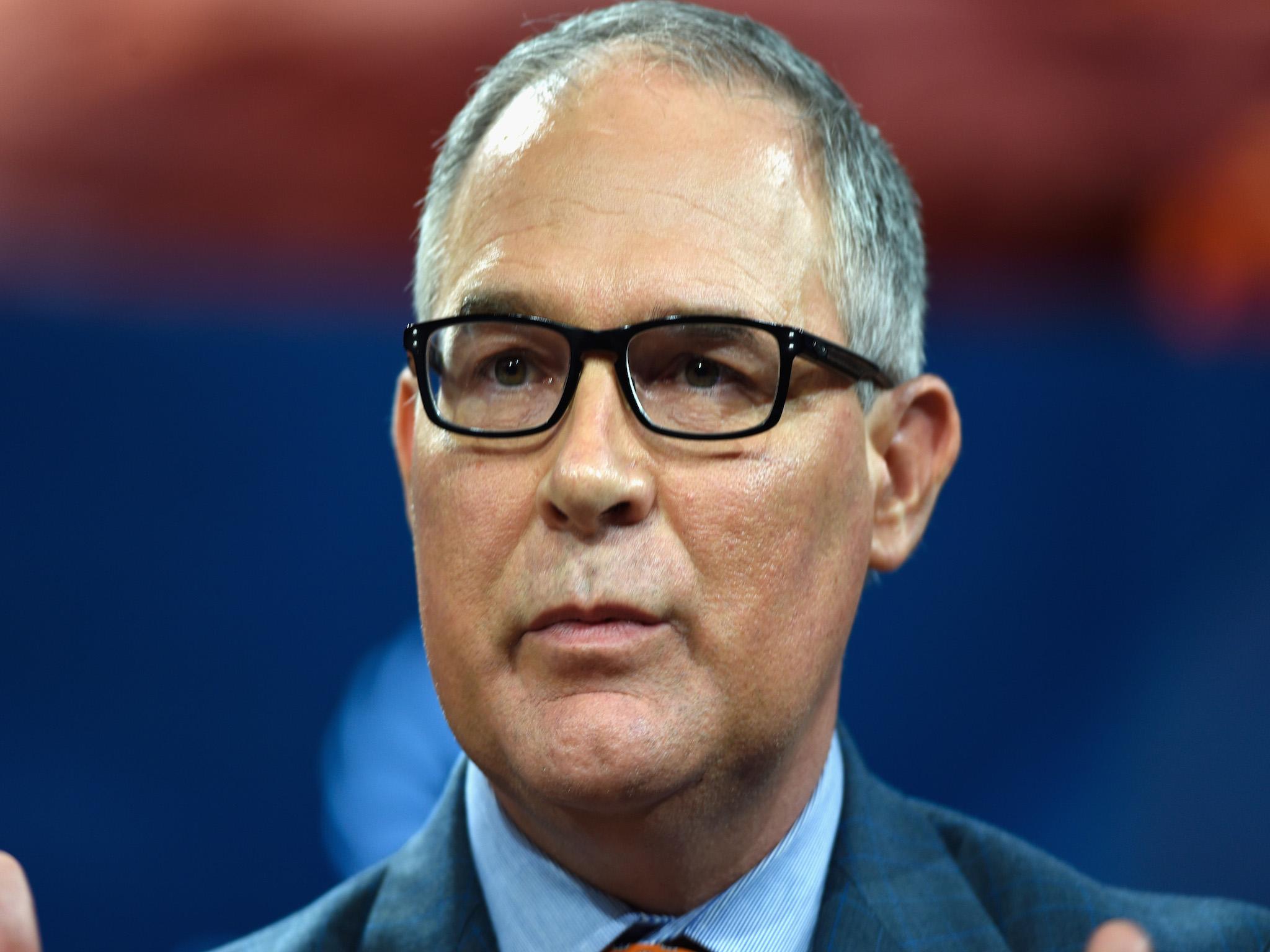Man who thinks pollution can make children healthier expected to join Trump's environment team
'Modern air,' he said in 2012, 'is a little too clean for optimum health.'

An expected choice for science adviser of the US Environmental Protection Agency believes the air is too clean – another indication that Donald Trump’s head of the EPA appears to be stacking the group in charge of trying to protect the environment with climate sceptics.
Robert Phalen, who currently directs the Air Pollution Health Effects Laboratory at the University of California Irvine, has research that would support the deregulation of policies aimed at preventing air pollution.
“The relative risks associated with modern [particulate matter] are very small and confounded by many factors,” Mr Phalen wrote in a 2004 study. “Neither toxicology studies nor human clinical investigations have identified the components and/or characteristics of [particulate matter] that might be causing the health-effect associations.”
Mr Phalen has asserted that air is currently too clean, because children’s lungs need to breathe irritants so their bodies can learn how to fight them. “Modern air,” he said in 2012, “is a little too clean for optimum health.”
Since becoming EPA administrator earlier this year, Scott Pruitt has been consistently lambasted by Democrats, scientists and environmental groups for several actions he has taken as head of an agency that has been tasked with protecting human health and the environment by writing and enforcing regulations based on laws passed by Congress.
Critics of Mr Pruitt have said the former attorney general of Oklahoma is creating an EPA that is more industry-friendly and could be susceptible to being controlled by the businesses it is supposed to be regulating.
Another controversial move that Mr Pruitt is expected to make is the appointment of Michael Honeycutt, the top toxicologist at the Texas Commission on Environmental Quality, to chair the EPA’s Scientific Advisory Board.
Mr Honeycutt has argued with the agency over ozone standards. He also co-authored a study published in an air and waste management magazine which asserted that the health benefits associated with having more stringent air quality standards are overblown.
This week, the EPA announced it would bar certain scientists from serving on its independent advisory boards, which provide the scientific input for agency decisions around pollution and climate change regulation. Anyone who receives EPA grant money can no longer serve on those panels, the agency said.
The agency labelled the move as a way to preserve the independence and diversity of the boards, but critics asserted that neither Mr Pruitt nor Republican critics of the panels had found any instances in which academic advisers profited from the EPA by providing advice.
“Whatever science comes out of EPA, (it) shouldn’t be political science,” Mr Pruitt said in a statement, adding that committee members will be “financially independent” from the agency.
He is expected to appoint several industry representatives to the panels, according to the New York Times.
Mr Trump has repeatedly touted that the EPA is removing restrictions that have intruded on American businesses and lives.
“We are returning the EPA to its core mission: clean air and crystal clean water. That's what we want. We want clean air. We want clean water,” he said during a speech in September to the National Association of Manufacturers.
Join our commenting forum
Join thought-provoking conversations, follow other Independent readers and see their replies
Comments